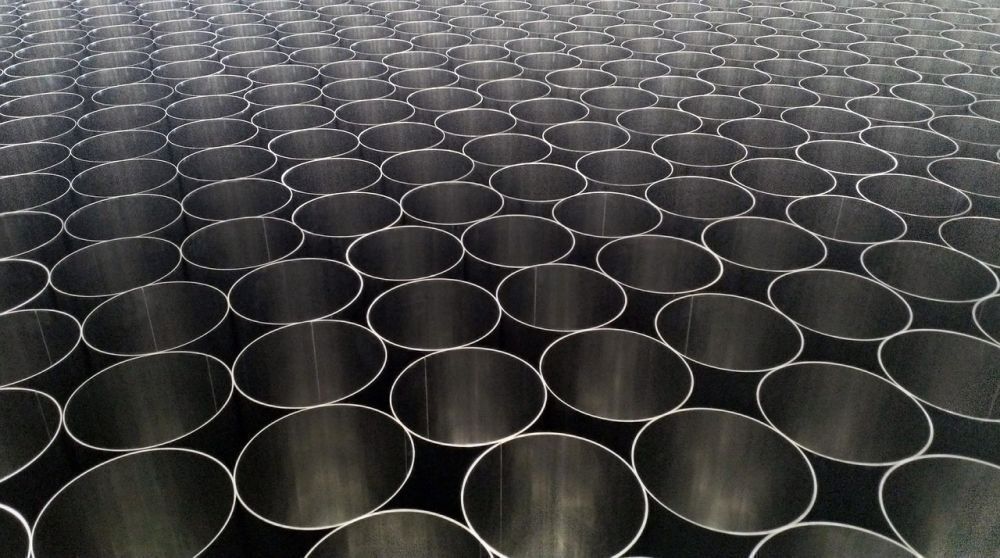
Types of Round Steel Tubing and Pipe Used for Fencing
There are many different types of metal fences out there, and many of them have round tubing or pipe frames and structural components.
However, while these fence components might look the same from the outside, they might be very different on the inside, and it can be hard to tell. Here’s a little more about the different types of round tubing and pipe used for fencing and how you can make sure you get what you’re paying for.
Types of Round Tubing and Pipe for Fencing
If you’ve ever been involved in the fence business or in steel and metal work, you probably know that there are different types of tubing and pipe out there. These different types of metal pipe and tubing look very similar, but they have very different properties. Here are some of the more commonly used items in the fence world.
Cold Rolled and Mild Steel Tubing
Cold rolled, and mild steel tubing are some of the most commonly used types of round steel tubing used in the fence world.
Both of these types of tubing are strong and durable enough for most fence-related applications, but they’re also one of the more cost-effective options.
Typically, these kinds of tubing have straight joins or welds, and if you want to increase the strength of the fence, you simply increase the wall thickness of the steel you select. The thicker the steel is, the stronger the fence component will be. Depending on the wall thickness of this kind of tubing, it could be used for residential fences, commercial fences or industrial and high-security fences.
Schedule Pipe
Schedule pipe, usually Schedule 40 in the fence world, is designed to withstand pressure from inside. In fact, Sched 40 as it’s also known, as well as the other kinds of Schedule pipe, are also used for plumbing and water processing applications, as well as pipework in factories, refineries and other industrial applications.
This kind of pipe is sometimes known as “seamless pipe” because, unlike ordinary cold rolled tubing, it does not have a seam down one side. This helps to prevent it from bursting when subjected to internal pressure, which makes it appropriate for all those other applications!
Sched 40 pipe used for fencing is also much thicker than ordinary fence pipe, which makes it much stronger and more durable. This kind of pipe is usually used for industrial and high-security fence systems.
HSS
HSS or Hollow Steel Sections is another specialized type of steel that can be used in fencing but is not usually a standard specification.
Like Schedule 40 pipe, this kind of steel tubing is designed to be much stronger, and as the name suggests, it is usually used for structural steel applications.
If you want an HSS fence structure for your project, you will have to specifically request it because this is not a typical fence structure material.
Why Does It Matter What Kind of Pipe or Tubing You Get?
You might be wondering why it would matter what kind of pipe or tubing you get, and in most cases, with ordinary, low-security barrier fences, it won’t.
However, when you’re building higher security fence systems that will be considerably heavier, that might have to withstand high wind loads or something else, the strength of the tubing or pipe will be much more important.
Round tubing in particular, tends to deform when it is subjected to high loads, so like most kinds of construction and engineering, you need to create a specification with materials that are strong enough to handle whatever the fence system will be subjected to.
In fact, if you want to build a very heavy, very high-security fence of some kind, it’s always a good idea to have an engineer approve the design. Many fence contractors will state that any designs they provide are subject to approval by the client’s engineer.
How to Check What Kind of Tubing or Pipe You Are Getting
We’d all like to think that every fence company out there is honest and sticks to the specifications their customers request, but the truth is, some do use lower-quality tubing or pipe for their fences, even when their quote says something else.
If you’ve requested a specific type, grade or wall thickness of steel for your fence, there are a few things you can do to ensure you get what you paid for, such as:
|
Always Be Specific When Requesting Quotes or Bids
Sometimes, you can have two fences right next to each other that look completely identical but that are made from very different materials.
Usually, if you’re doing a small residential fence that won’t do anything more than keep kids and poodles in your yard and curious rabbits out, that doesn’t matter too much.
However, if you want a commercial, industrial or high-security fence that meets higher specifications and standards, make sure you ask for it in detail.
If you don’t tell fence companies what you expect from your fence, you are leaving it up to their discretion, and many (although not all) fence companies will quote you on the lowest-cost option that will get the job done. If other fence companies quote on something that is better quality but still meets the general specification, you might dismiss their quote as uncompetitive when actually it’s not.
Steel and tubing for fence structures should always be specified by grade, type, wall thickness and as many other details as possible to ensure you get the exact system you want for your project.


